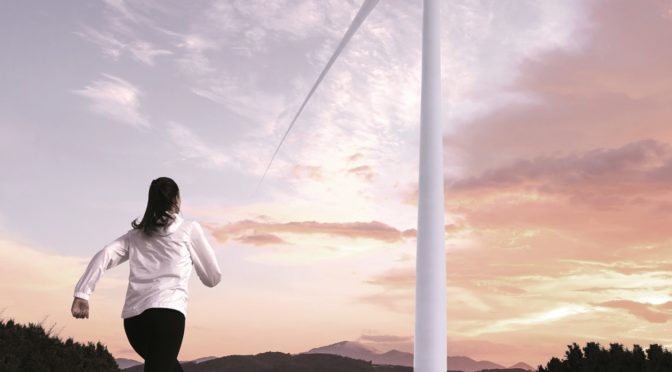The CEO of wind turbine manufacturer Siemens Gamesa encourages students to opt for science to curb climate change, during the presentation of a report on the benefits of wind energy.
This new report highlights the social, health and economic benefits that the momentum of renewable energy would entail
According to Markus Tacke, students’ lack of interest in areas such as science, technology, engineering and mathematics (STEM) could be a potential obstacle to fighting climate change in the coming years.
Accelerating the use of wind energy would reduce pollution, save lives and preserve vital water resources, according to a new KPMG report, promoted by Siemens Gamesa Renewable Energy, a leading manufacturer of wind turbines.
The KPMG wind energy report – ´The socioeconomic impact of wind energy in the context of the energy transition´- highlights the significant benefits for society that would lead to an increase in clean energy. The report points out that the demand for wind energy could be multiplied by nine by the year 2040 (from 4% to 34%), and that a decade later, in 2050, it would avoid the same level of pollution as that existing in the 80’s most polluting cities (5.6 billion tons of CO2). This reduction would have real benefits for society by saving up to four million lives a year and reducing health-related costs by 3.2 billion dollars annually.
In response, Markus Tacke, CEO of Siemens Gamesa, has appealed to students from around the world to opt for the studies of the branch known as STEM (Science, Technology, Engineering and Mathematics) and careers related to energy renewable, and thus play their role in the fight against climate change.
In 2019, students have transformed the debate around climate change, giving it greater urgency and dynamism. The data support this concern, with the disappearance of more than 60% of wildlife in just over 40 years.
During the presentation of the report, Tacke recognized the impact that young people have had on this issue and expressed the firm commitment to provide clean energy to society as part of efforts to address this crisis. Tacke called young people into action, expressing concern that the shortage of students opting for STEM careers could leave the industry without the talent needed to drive change. “You can do something. You can choose to be the one who makes the change happen. Choose STEM,” he said.
“Choose a career that transforms your curiosity and passion for changing solutions. Solutions we need now, and we will need even more tomorrow.”
In addition, Tacke highlighted the role that regulators, governments and companies should play in promoting energy transformation.
“We all come here today from different areas, industry representatives, analysts, political institutions, but we share the same concern: how to use the knowledge and instruments we have right now to start addressing climate change, because there is a real urgency” , said. “There is still a lack of clear financial and political incentives. The barriers to a large-scale transition to renewable energy lie not only in the costs of technology, but also in the long-term strategies and investments that make these ambitious plans come true,” he added.
The new report also identifies other key benefits resulting from the energy transition. Water scarcity is becoming a major problem that affects 40% of the world’s population. The report highlights that wind power could save 16,000 million m3 of water in 2030 (an amount equivalent to about 15% of Dead Sea water).
Other conclusions of the report show that renewable energy can be key to improving well-being in developing countries. Around the world, one billion people live without electricity and 2.7 billion do not have access to clean technologies for cooking. With an ambitious energy transition, universal access to electricity could be guaranteed in a decade.


